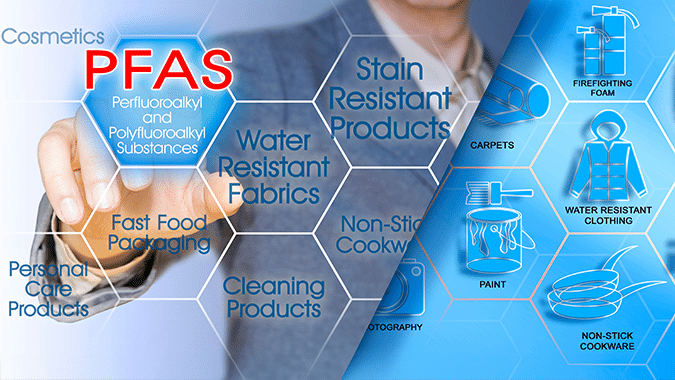The U.S. Environmental Protection Agency (EPA) says it is modifying its regulations to allow for an 8-month delay in the mandated reporting of perfluoroalkyl and polyfluoroalkyl substances (PFAS) due to the complex administrative burden involved for businesses and regulators.
Under the rule finalized last year, manufacturers and importers of PFAS at any time since 2011 had an EPA reporting window that was supposed to open on Nov. 12, 2024, and close for most companies on May 8, 2025. EPA is delaying that submission period by eight months, saying it will now open July 11, 2025, and close for most companies on Jan. 11, 2026.
The change in the reporting requirement was published in the Federal Register on Sept. 5. EPA said it was taking this action because of delays in the development and testing of the software application that will be used to collect information from thousands of companies.
“The proposed revision of the submission period would facilitate compliance with the rule and help ensure that the collection includes accurate data on manufactured PFAS in the United States,” the EPA notice in the Federal Register states.
When the EPA published the original reporting requirement rule in 2023, it estimated that it would take industry 129,000 hours to gather the information needed to comply with the reporting requirements at a cost of $800 million to businesses. The cost to EPA would be an additional $1.6 million, the agency said at that time.
The National Association of Manufacturers said this week that the EPA’s decision underscores the massive burden this retroactive reporting requirement places on both the agency and manufacturers, who must submit records dating back more than a decade.
“We are pleased to see the EPA delay this retroactive reporting requirement—as the NAM has called for — which will temporarily prevent an increase in the regulatory burden facing manufacturers,” NAM Vice President of Domestic Policy Chris Phalen said.
“More broadly, today’s announcement reflects the massive administrative burden this proposal would impose on both the business community and regulators, while failing to provide insights for effective and prioritized public health efforts,” Phalen said. “We urge the agency to reverse course entirely, unless and until it has the capacity to effectively enforce the standard.”
EPA said it was not proposing any changes to the scope of the reporting requirements mandated by its Toxic Substances Control Act (TSCA) regulations, only the submission dates.
PFAS are manufactured chemicals that have been widely used in industry and consumer products since the 1940s. There are thousands of different PFAS, some of which have been more widely used and studied than others.
PFAS are synthesized for use in many products ranging from firefighting foams to coatings for clothes and furniture, to food contact substances, to the manufacture of other chemicals and products. They are found in a wide variety of products, including textiles, electronics, wires and cables, pipes, cooking and bakeware, sport articles, automotive products, toys, transportation equipment, and musical instruments.




